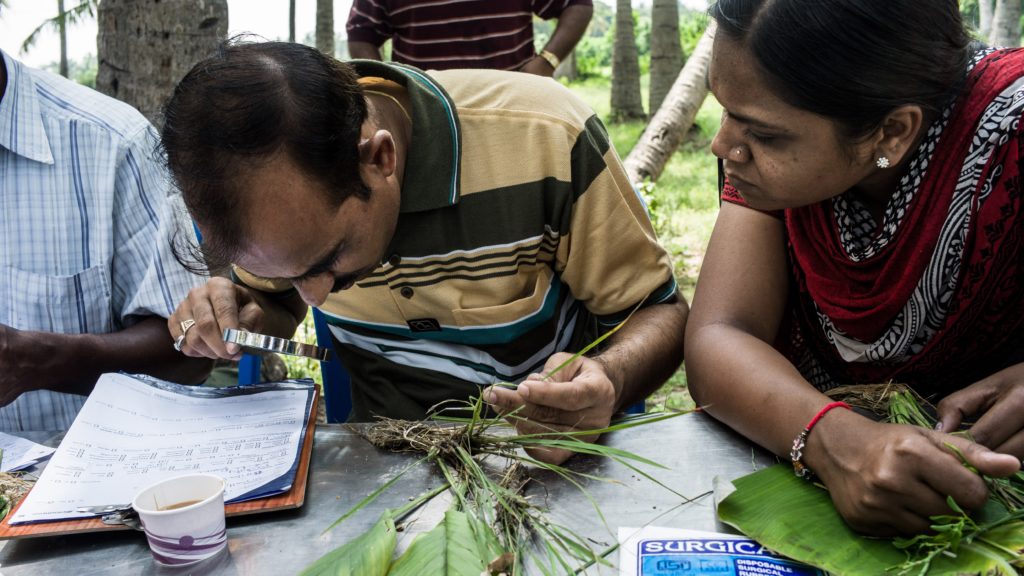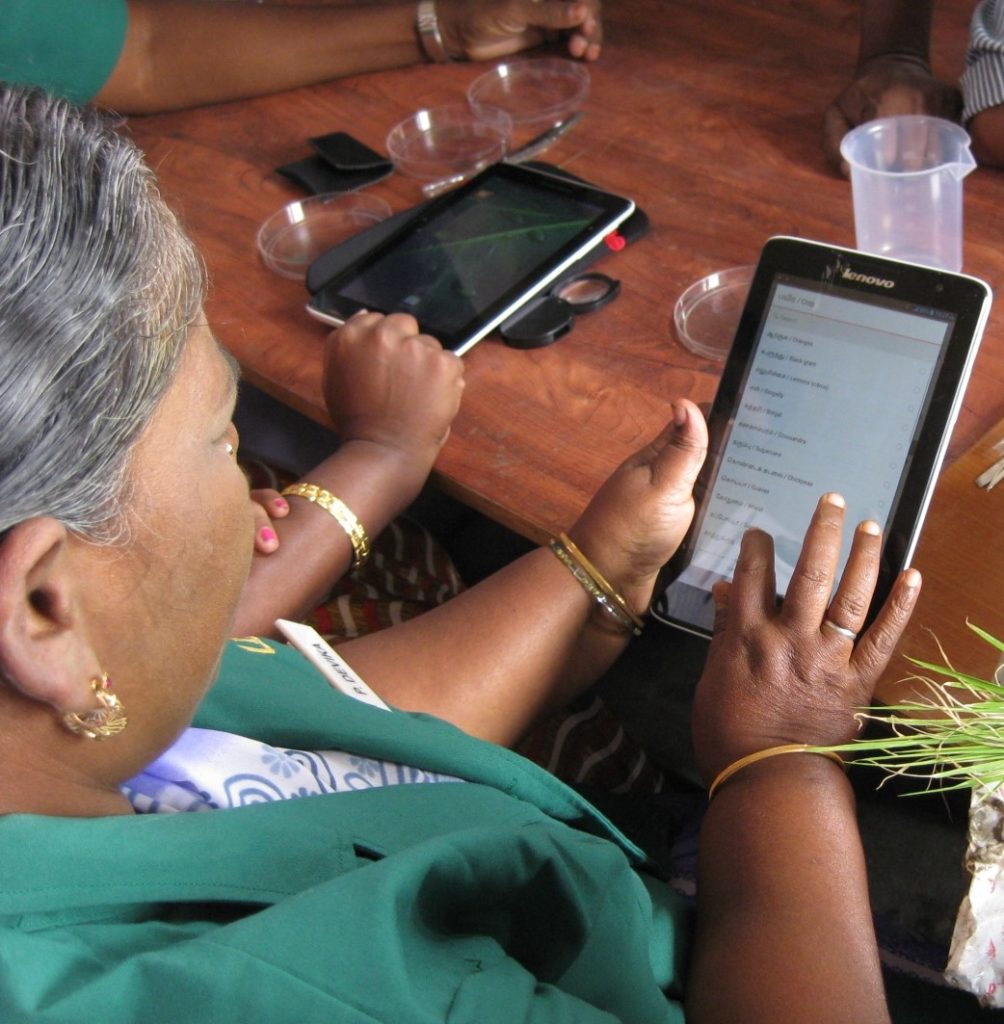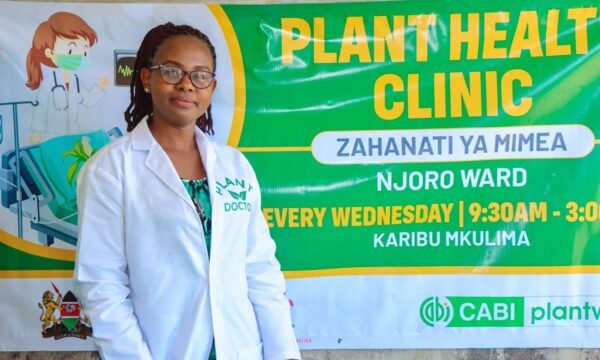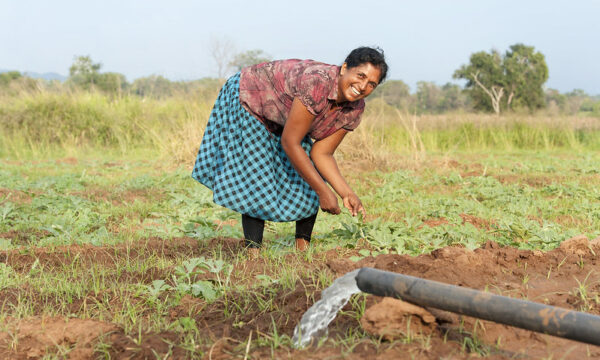
It has been proven that access to extension services is one of the key pathways to enhancing technology uptake, promoting innovations, and improving production among smallholder farmers. These studies have pointed out the very high rates of return (13-500%) of extension as an economically viable way to increase productivity and income. In fact, the same research evidence has shown that “investment in extension yields 80% of annual rates of return with a positive effect on knowledge, adoption, and productivity.”
However, access to public agricultural extension services is low owing to the wider ratio of extension workers to farmers with only one extension officer per 1,162 farmers against the recommended 1:750. This means farmers’ access to quality plant health advice is severely limited. This was only reiterated by the recent National Sample Survey Data, which showed that only around 41% of farmers in India receive agricultural extension services. Private input dealers tend to be the main source of information for plant protection on a day-to-day basis, while public agricultural extension systems and research institutions provide agro-advisories as a kind of alert system when a problem is noticed in the field.
This nexus between pesticide companies and input dealers often does not help farmers to get reliable advice because of their need to meet business interests. Against this backdrop, the plant clinics have become vital to farmers, particularly when they are regularly facing a range of new pests and diseases on their farm and want reliable management advice that isn’t overly influenced by a changing market.
In the states of Tamil Nadu and Puducherry, the plant clinic initiatives have shown to be a demand-driven extension tool among smallholders. Gaining the trust of farmers in the region was fundamental and this was initially achieved in a number of ways including: awareness building of the services and consideration over the quality of the locations for the plant clinics. This farmer-friendly approach for enhanced trust and priorities like time, location, language enables extension workers to fully explain plant health issues and remedial measures.
The farmers expressed that for them, what was most unique and useful was the opportunity to interact with experts, using the clinics as a forum to express their needs and issues, and ultimately gaining a personal extension service. Furthermore, they were able to share their improved knowledge with other farmers, promoting collective learning by sharing issues and solutions. The plant clinics are supporting farmers by offering access to personalised advice from sowing to harvesting.
Although the main purpose of plant clinics is to extend information and knowledge on plant health, often farmers come up with general agronomic queries, which in one way or the other have become a part of the integrated pest management (IPM) strategy advocated by Plantwise.

As well as the plant clinics that are held in villages, information and knowledge is further disseminated through modern technology, namely farmer helpline services, phone-in programmes, social media, and messenger apps especially WhatsApp, all of which are used regularly by smallholders. So although not all the farmers are directly accessing plant clinic services, they are getting advice from their friends, neighbours and family who do. This indicates a horizontal transfer of knowledge among farmers and shows that the plant clinics are a platform for peer-to-peer learning.
This means that these plant clinics are evolving as an alternative model of a participatory extension service system. The impacts of the plant clinics are reflected in the changes in the ways the farmers manage pests and how they have evolved to continue learning and sharing this knowledge throughout their communities, instilling confidence in agriculture as a viable livelihood and enterprise.
The Plantwise team on the ground in this region are in the process of recording evidence-based field results to showcase meaningful impact at policy level with a view to upscaling and mainstreaming the plant clinics through public extension services. Also, efforts have been initiated to upscale by harnessing the strength of machine learning and artificial intelligence tools. How can the changing modes of communication and ever-increasing use of mobile phone technology and internet in rural areas be incorporated into participatory extension services?
With Contributions from Dr. R. Rajkumar (MSSRF) and Dr. Vinod Pandit (CABI)
Related News & Blogs
How plant clinics are strengthening crop health services in Bangladesh
When the first-ever plant clinic in Bangladesh opened in Dhaka in 2013, it initially faced a lack of interest due to its novelty and limited awareness among farmers. However, it went on to expand, providing advice to over 17,000 farmers and led to the…
2 July 2025




